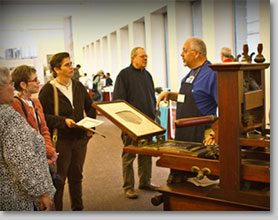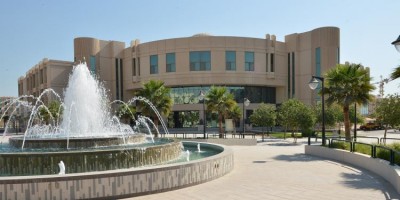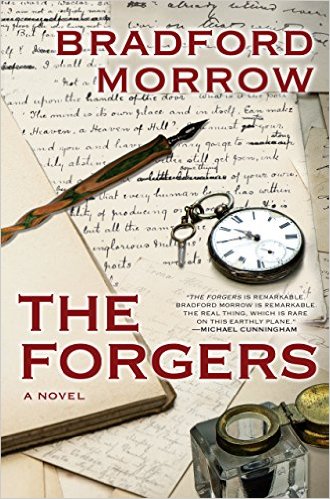Youth matters: The digital age presents challenges for publishers.
The Japanese word, tsundoku, is a play on the words tsumu, to pile up and doku, to read. The composite word captures the almost tsunami of issues piling up for books and book collecting, which I'll be addressing in detail at Bibliographica 2014 at the National Library next week.
Can printed books survive the impact of current disruptive technologies, even though the sale of e-books is plateauing out in a number of countries? While tablet sales have now overtaken dedicated readers like Kindle, Amazon has recently introduced its Kindle Unlimited service which offers "unlimited access to over 600,000 titles and thousands of audiobooks on any device for just $9.99 a month".
 Book versus Kindle: Is it merely a matter of work-life balance?
Book versus Kindle: Is it merely a matter of work-life balance?Kindle Unlimited is almost a return to the British historical circulating libraries like Mudie's, which had 7.5 million books in its inventory at the end of the 19th century. Boots, in the 20th century, advertised access to "the finest library service in the kingdom for less than the price of a newspaper". The commercial medium may change, but the message remains, even centuries apart.
Hugh Mackay recently reported that over 50 per cent of Australians felt they could not live without their mobile phones, while recent Ofcom research revealed that the average UK adult now spends more time using media or communications than they do sleeping. Judy Wajcman in her recent book, Pressed For Time. The Acceleration Of Life In Digital Capitalism reflects that technological innovation is supposed to save time and energy, but in fact, people have never felt more pressured.
There is still the need, however, for human interaction in an increasingly digital age. Thus, more people than ever are attending literary festivals where you can hear and meet your favourite author. There are now 354 literary festivals each year in Britain alone. In Australia, literary festivals, from Brisbane to Perth, have seen record attendances and book sales in 2014.
While men are the main book collectors, women are the main book readers. Women are also the main attendees at literary festivals. In that context, it was good to hear Julia Gillard at the National Portrait Gallery on November 10 say that she had rediscovered "the joy of reading for pleasure". Gillard mentioned that her current reading favourite was Hilary Mantel, although she refrained from making any cross-reference to the current government and that of Henry VIII.
While literary festivals usually attract an older demographic, younger readers flock to Comic Cons, which record large sales of graphic novels and comics, often linked to TV or film adaptations. Autograph signings by actors from popular TV series and films feature as a major part of these conventions. Autographs are often expensive, but buyers know their autographs are genuine, which is often a problem with eBay sales.
My purchase of a signed Ray Bradbury book in the late 1970s from a major Australian book dealer, proved not to be genuine, when I later checked the signature with Bradbury. So caveat emptor is always the motto. Buyers should also be aware that prices of signed first editions fluctuate almost as much as shares on the sharemarket. Nonetheless, the seller of a signed unread mint copy of the first edition of Richard Flanagan's recent Booker prizewinner would surely have been overjoyed in selling it through the ABE website for $1500.
Amassing a large physical book collection doesn't necessarily entail spending a large amount of money, but you do need the space to house it. Flats lend themselves more to paperbacks and e-books. Barry Humphries, a long-time noted book collector, can clearly afford to accommodate 30,000 books in London, while Nick Cave has been cited as having 100,000 books in his Brighton house. Other notable celebrity collectors include Bryan Ferry and Keith Richards, who apparently once contemplated a career as a librarian.
If you don't have the time to seek out your favourite books in a particular subject, Philip Blackwell, a member of the famous Oxford bookselling family, offers the "Ultimate Library" service, with individual book collections customised for the home or hotel, as occurred with the Savoy Hotel in London.
Charles Stitz, in his excellent Australian Book Collectors volumes, documents numerous examples of collectors whose houses are overrun by books. Relatively few of these are seen, however, in The Canberra Times glossy Saturday magazine, Domain, which almost resembles "property porn" with its pictures of sumptuous house interiors. A famous New Yorker cartoon once showed a real estate agent telling prospective sellers to "lose the books", as they would depress the house value.
Stitz has illustrated the problems faced by book collectors as families downsize or enter retirement homes. I vividly remember visiting the late Professor Oskar Spate in a retirement village in Holt and his angst at only having the space for three to five books in his small room. Access to content would now be alleviated by e-books, but not their physical presence.
Second-hand book dealers and libraries are increasingly reluctant to take large general book collections. University and state libraries prefer to be offered focused specialist collections. But, that is only if they fit their collection profile, have space to house them and resources to process them – a big "if". Public libraries, other than the major state libraries, no longer generally hold large book collections and regularly "weed" collections.
Retirees and children are often the staples of public libraries, which seem to be morphing into social hubs, offering a range of community services beyond book collections. None seem, however, to have followed the example of Edith Cowan University Library in Perth, which has installed sleeping pods for readers to take "power naps". Will librarians, in due course, become bibliographic baristas, just as some bookshops have joined with coffee shops to survive?
Internet access and digitisation has assisted public libraries to combat, in part, the Kindle Unlimited challenge. The entire digital collection of the San Antonio public library system is now available from kiosks at the local airport. A digital bookshelf, "The Library Wall", was recently installed on a North London street to allow users to download non-copyright book titles into their mobile devices.
One segment of the book market that is booming, without even the necessity to read the content, is the high price limited signed edition, exemplified in the offerings of the German publisher Taschen. With the Rolling Stones in the country, why not buy one of its latest offerings, a limited Rolling Stones "Sumo-sized book", numbered and signed by them, with a foreword written by Bill Clinton. A snip at £3500?
Their offerings, however, have been topped by the Ferrari Opus Enzo Diamante. Encrusted with diamonds, signed by all living Ferrari Grand Prix drivers, it was marketed as the most exclusive book in the world when published in 2011. Only one copy was made available in each country at a price of £155,000. The Australian copy was apparently quickly snapped up after being displayed at the 2011 Grand Prix in Melbourne.
These books are far more than "tree flakes encased in dead cow", which is how one commentator has called the traditional printed book. Books will remain an effective information and entertainment source in a variety of forms, such as those accessed in the new Digital Public Library of America. The definition of a book may expand, but books and their content will remain "a fundamental channel of culture", as The Economist magazine recently reaffirmed.
Colin Steele, Emeritus Fellow at the ANU and long-time Canberra Times book reviewer, will give the keynote address at the Annual Conference of the Bibliographical Society of Australia and New Zealand at the National Library on Thursday, November 27.
Colin Steele
Curriculum Vitae
- M.A. (Liverpool University)
- Grad.Dip.Lib. (University College London)
- Emeritus Fellow 2004, The Australian National University
- Director, Scholarly Information Strategies, ANU, 2002-2003
- University Librarian, ANU, 1980-2002
- Deputy University Librarian, ANU, 1976-1980
- Assistant Librarian, Bodleian Library, Oxford, 1967-76
















